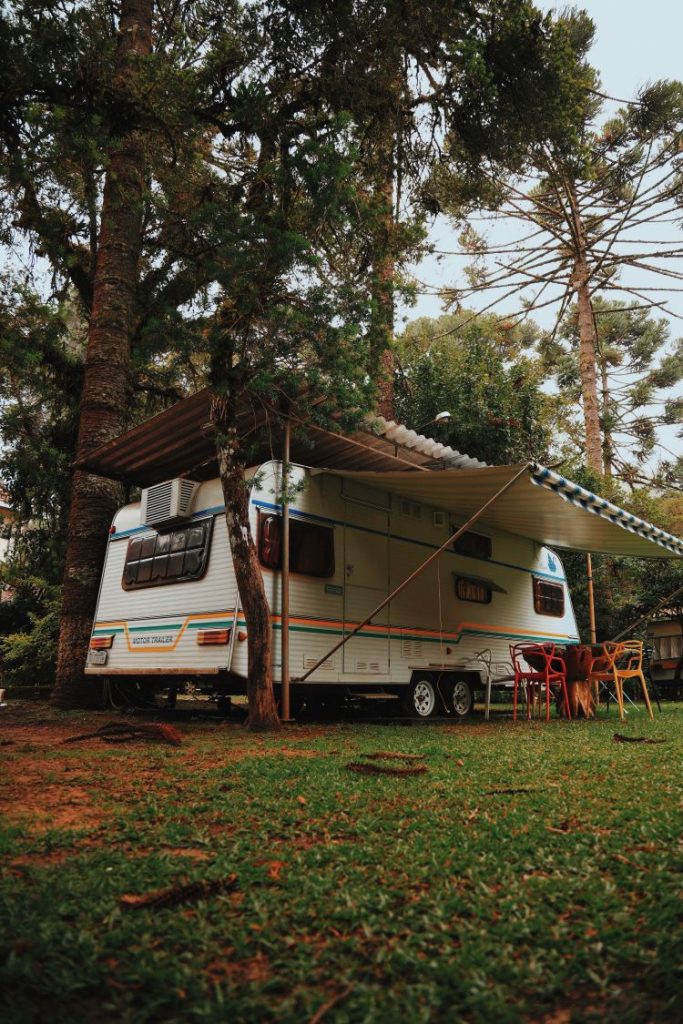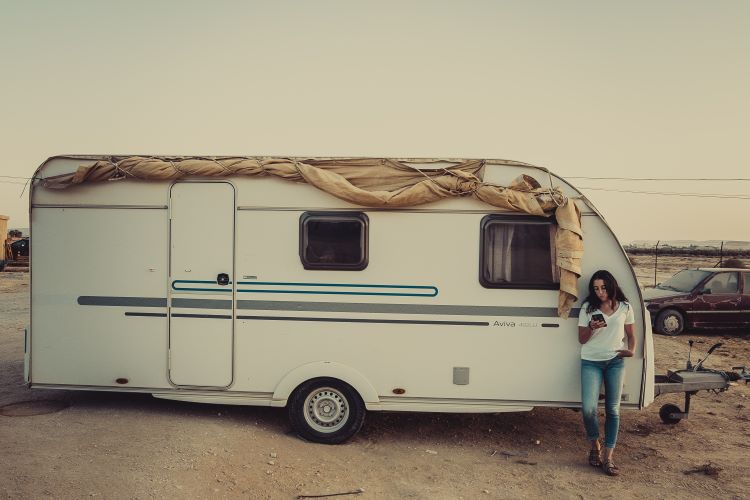Unless you live in the RV full-time, the odds are that you’re going to be leaving the RV in your driveway or storage most of the time. Ideally, you’d like to store the RV under a roof, but indoor storage in a storage facility is expensive and most of us don’t have a covered parking spot large enough for an RV. The solution is an RV cover. But why do you want to cover an RV?
Reason 1: It Protects Against the Sun
If you cover an RV, you protect it from the sun. While sunlight won’t cause sunburn to an RV, it will make the paint fade. It will also oxidize the rubber components and make the paint peel. This can lead to structural problems such as when the roof paints bubbles and cracks, affecting the vents. You won’t see the trim on the RV crack or breakdown as fast, either.
Reason 2: It Protects Against Moisture
Rain looks pretty, but the slow flow of water erodes even mountains. Rain will wear on the surfaces of your RV. Covering the RV protects it against this. It also prevents snow and ice from accumulating on the RV, seeping into cracks and freezing, causing surface damage. A side benefit of covering the RV is that when snowmelt or rainwater does collect on top of the RV, it isn’t sitting on the RV roof or niches on the surface where it can slowly seep in. To get the right protector covers, RVside.com published good and enough information about what you should check a time.

Reason 3: You Won’t Have to Clean It as Often
When you have a cover on the RV, you’re not going to need to clean it as often. This prevents bird droppings, wind-blow dust, and mud thrown up by street traffic from getting on the RV. Mud thrown up by the wheels of cars parked beside it won’t hit the RV, either. Pollen, leaves and smog residue settle on the tarp, not the vehicle. Just remove the tarp, and you’re good to go.
Reason 4: It Offers a Layer of Protection
The level of protection varies based on the RV cover, but anything is better than nothing. For example, the average RV cover won’t stop hail though there are RV covers and vehicle covers that can inflate to provide this protection. Yet it will prevent minor pea-sized hail from dinging the exterior and possibly stop it from chipping the RV windows. Small pebbles and other debris is thrown up by passing cars are less likely to damage the RV, as well. If a branch does land on the roof of the RV, it is less likely to scratch the surface if blown or pulled off.
Reason 5: It Can Protect from Temperature Extremes
Covering an RV will not always protect against temperature extremes, but it can offer a measure of damage. For example, covering an RV won’t prevent it from freezing. However, covering it with a cover designed to reflect away the sun’s rays will prevent the interior of the RV from getting as hot in the summer. Then you won’t have to run the engine or generator to cool off an RV that hit up to 140 degrees F in the summer sitting out in the hot sun. A side benefit of using a cover is that you can park in the shade without worrying about leaves and bird poop damaging the surface.

Reason 6: The Dedicated Cover Is Better than a Tarp
If your goal was just to protect the paint from sunlight and the RV from casual damage from smog, a tarp might do it. However, traditional tarp can’t breathe. That’s the fancy term for it failing to let moisture drain away. In reality, it traps moisture against the RV as it condenses on the inside of the tarp or runs off a wet vehicle. That moisture can leak into the RV. Or it can freeze against the RV. Another issue with tarps is that they need to be secured by ropes or bungees. When these fasteners shift in the wind or with gravity, it can cause damage to the vehicle’s body.
Conversely, an RV cover won’t damage the vehicle even if blown in the wind and exposed to the elements. There is less risk of the RV cover fraying and damaging the vehicle over time.
Reason 7: It Is Cheaper than the Alternatives
The benefits we’ve mentioned for covering an RV are true whether you put a tarp or plastic cover over the RV or park it in a storage building. One of the biggest benefits of an RV cover is that it is far cheaper than storing the RV in an indoor facility or the slightly cheaper covered parking spot.


